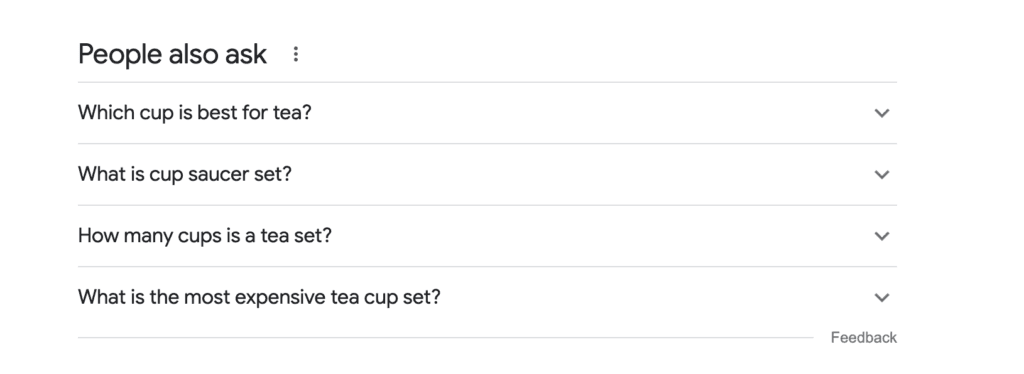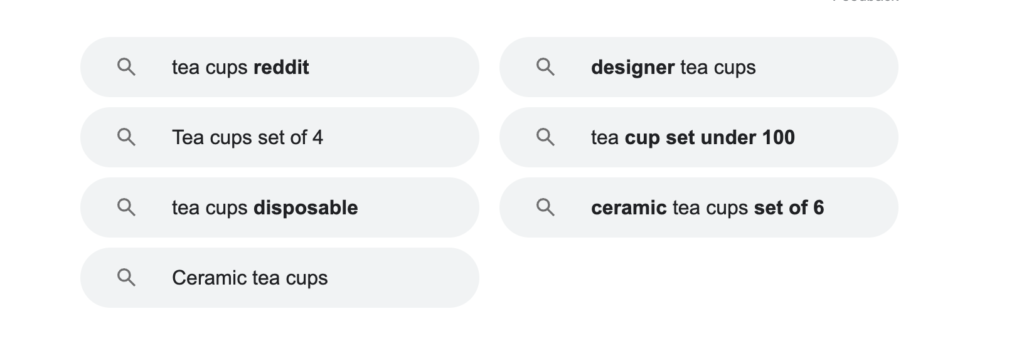How To Do Keyword Research Without A Tool (Answered)

As a blogger, I have been exploring and experimenting with various techniques for content creation over the years.
But I soon realized that I could achieve great results without relying on any software at least when I was starting out.
This journey has enabled me to understand my niche in-depth, allowing me to develop articles that resonate with readers without depending on any keyword research software or tools.
In this blog post, I’ll teach you how you can research keywords easily without using any tool.
Can You Research Keywords Manually Without a Tool?
Yes, you can do keyword research without using any tool or software.
In fact, this method can be more freeing and creative than using a tool because it forces you to think outside the box and come up with new ideas.
Here are some of the benefits that in my opinion make keyword research without a tool worth it!!
- Cost savings: Keyword research tools can be expensive, especially for beginners who are just starting their blogging journey. Researching your keywords without any tool can save a considerable amount of money.
- Unleashing creativity: When you’re not dependent on a tool, your mind is free to explore various aspects of your niche, helping you come up with unique and engaging topics.
- In-depth understanding of your niche: As you spend more time brainstorming and researching topics, you’ll develop a deeper understanding of your niche.
- Discovering low-competition keywords: Doing your research without any tool, you can stumble upon low-competition keywords that have not been extensively covered by other websites, giving you an edge in ranking higher on search engines.
- Developing intuition: With time and experience, you’ll develop an intuition for identifying potential topics that resonate with your audience. Believe me, this skill will be invaluable in the long run.
In my blogging journey, researching keywords without any tool has been a game-changer when I had no money to invest😓.
It has helped me use my creativity, develop a deeper understanding of my niche, and discover unique and low-competition keywords.
And this can help you too if you’re just starting out as a blogger or working as a freelancer. I think I’ve been able to create content that consistently resonates with my audience just because I risked allocating some time to research manually.
Steps to Manually Research Your Keywords Without Using a Tool
Now, let’s learn how you can easily research keywords without tools like Semrush, Ahrefs, Keyword Sheeter, and more.
Step 1: Using Google’s Auto-Suggest
Whenever I need to find relevant keywords, I turn to Google’s auto-suggest feature.
Simply type a broad keyword related to your niche and let Google show you related suggestions.
For example, when I typed “Tea Cups,” Google provided a list of related keyword ideas.

You can also add words like “for,” “with,” and “about,” and question words like “how” or “why” to your keyword to discover even more suggestions. Or you can use an asterisk symbol before or after a keyword.
For instance, you can type “Best * in USA” and Google will fill up the symbol with keywords.
Step 2: Make a List of Keywords from Google’s People Also Ask
Google’s People Also Ask feature is a goldmine for finding question-based keywords.
You’ll often find a People Also Ask section in the search results when you search for a keyword. These questions are based on real user queries, so they’re relevant and usually have lower competition.

Take the same keyword “Tea cups.” When I searched for it, Google suggested to me what else people are asking for related to our keyword. Like “Price of Tea Cup” or “What Size 1 Tea Cup Is?”
Click on the drop-down icon next to the questions to reveal more related questions.
I’ve found this feature incredibly helpful for building out FAQ sections and incorporating questions into my blog posts.
Step 3: Now Grab Your Keywords From Google’s Related Search
When it comes to SEO and content marketing, it’s important to build a topic cluster around a single keyword. It not only helps you rank higher on search engine results pages (SERPs), but it also makes sure that your content is useful and interesting to the people you want to reach.
To make a topic cluster, you must start with a main keyword or phrase that shows what your topic is about.
The main keyword in this case is “Tea Cups.” When you know your main keyword, you can use Google to find other keywords and phrases that are similar.
Scrolling to the bottom of the search results page is one of the easiest ways to find related keywords. There is a section here called Related Searches.
These are keywords that Google has found to be related to your main keyword in a logical way.

In the given example, when the user searched for tea cups, Google showed “tea cups for business” as a related search. By clicking on this related search term, the user could find even more related keywords and phrases, such as “best tea cups for offices” or “tea cups under $5.”
The user was able to make a complete topic cluster about saltwater fishing rods by putting together all of these related keywords and phrases.
This topic cluster could include blog posts, videos, social media posts, and other types of content that are all about Tea Cups. See? how easy it is to find keywords to target without using any tool.
Step 4: Leverage Quora or Reddit for Question-Based Keywords
Quora is a popular social media site where people can ask and answer questions about a lot of different things.
It’s a great tool for businesses and content creators who want to learn more about the needs and interests of their audience.
By using Quora, you can find out what questions your target audience is asking about your niche. You can then use this information to create content that provides value and meets their needs.
You can start by searching Quora for a broad keyword related to your niche. If you run a marketing agency, for example, you could look for “digital marketing” or “social media marketing.” This will bring up a list of questions and answers about your keyword.
Click on the Questions tab on the left side of the page to see only the questions that have to do with your search term.
This will show you a list of all the questions that are related to your keyword, along with the number of followers each question has and the date it was last updated.
You can also search “Site:reddit.com [Keyword]” and you’ll find a ton of hot and new questions on Reddit about your niche.
Look for questions that are related to your business or niche as you look through the results. Add these questions to your list of keywords and use them to help you decide what to write about.
Step 5: Use Jon Dykstra’s Microscope Keyword method
I have learned a lot from fatstacksblog in my early days of writing and blogging. When I had $0 to invest, I guess in 2021, I learned about his keyword research method.
The Microscope Keyword Method, as he calls it. It’s pretty simple and very effective too.
Here’s how this technique works. You start by choosing a very specific topic within your niche. It can be anything related to your area of interest.
Dive deep into that topic without needing any software.
Try to pick something you have personal experience with, as it’ll help you come up with better questions.
For example:
- Niche: Vehicles
- Focused topic: Pickup trucks
- Personal connection: Toyota Tundra (I own one)
- Specific topic: Carrying snowmobiles with a Tundra
Now, it’s time to think of potential article topics related to this specific subject.
These are some examples of topics I came up with in just a few minutes, without using any software:
- What are some affordable equipment options for a home gym?
- How can I make the most of a small space for a home gym?
- What are the essential pieces of equipment needed for a home gym?
- How can I build muscle with limited equipment?
- What are some creative ways to save money on home gym equipment?
- How do I create an effective workout routine for a home gym?
You might wonder why you should do this when there are keyword research tools available. But according to Fatstacksblog, this method helps you come up with truly unique keywords and topics that might not show up in software databases.
It’s a great way to find low-competition topics and add variety to your content strategy.
So, give it a try!
Focus on a very specific aspect of your niche and start asking questions about it. If you have a question, it’s likely others do too, which can lead to valuable content for your website.
Step 6: Create an Excel For All The Keywords You Found
Once you have a list of possible keywords, you can put them in an orderly way in a keyword Excel sheet.
This sheet should have information like the number of searches, the competition, how relevant the keywords are, and the related keywords for each one of them.
Without software, you won’t be able to get search volume data, but you can get a rough idea by looking at how many Google search results there are for each keyword.
Most of the time, a higher number of results means that there were more searches.
Think about how hard it will be to rank for a certain keyword when thinking about competition.
Look at the organic search results and take note of how authoritative and good the sites rank for that keyword. If most of the top results are from high-authority sites, you may want to focus on keywords with less competition.
Last, think about how each keyword fits in with your niche, audience, and content.
Focus on keywords that are very useful and fit with your content strategy. Then your keyword research is completed, and that too without spending a dime on tools.
In case you still want some free keyword research tools, here’s a list for you.
- keywordtools.org
- Ubersuggest
- Google Keyword Planner
- Keywordsheeter
- Keywordintent
- Keyword Tool
- Free Keyword Tool by Wordstream
Ready to Find Your Keywords Without a Tool?
Using the above steps of manually finding your keywords within your niche is an excellent way to uncover unique, low-competition keywords and create valuable content for your audience.
It not only helps you stand out from the competition but also adds variety to your content strategy.
Remember that combining this method with keyword research tools can give you the best of both worlds, allowing you to discover untapped topics while still benefiting from the insights provided by software databases.
So, don’t hesitate to try this approach and see how it can enhance your content creation process.
Happy content crafting!

Nice post. I learn something totally new and challenging on websites
I very delighted to find this internet site on bing, just what I was searching for as well saved to fav